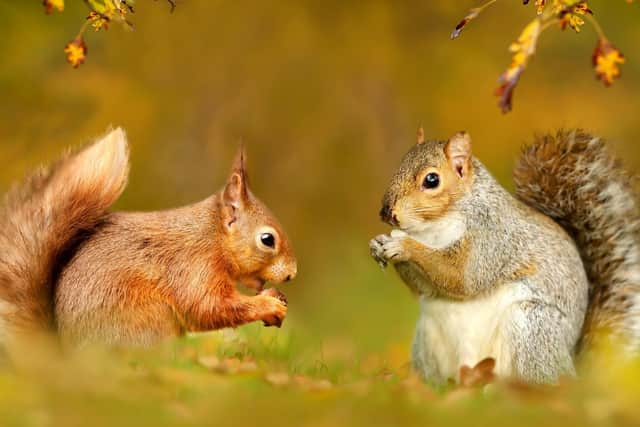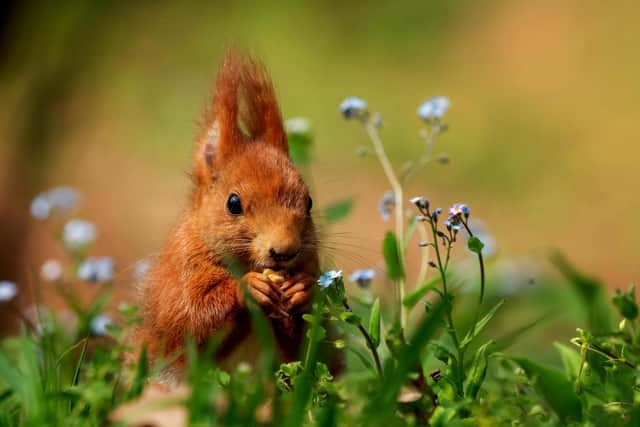Birth Control for Grey Squirrels? Science’s solution to save Red Squirrels from extinction
The UK government has approved a project to control grey squirrel populations via non-lethal oral contraceptives.
Lord Goldsmith, an environment minister, says that invasive species including grey squirrels create damage in our woodlands costing the UK economy £1.8 billion annually.
What is the Grey Squirrel Mass Birth Control Plan?
Advertisement
Hide AdAdvertisement
Hide AdThe project should help eradicate the UK’s grey squirrel population without killing them, according to environment minister Lord Benyon.
He says it should reduce the “untold damage” that the species causes our woodland ecosystems and red squirrel populations.
The plan is to lure grey squirrel populations into ‘feeding boxes’ that are only accessible to them.
Inside, they will find hazelnut spread which has been treated with oral contraceptives, removing their ability to mass procreate.


How does the oral contraceptive work on Grey Squirrels?
The project’s lead scientist, Dr Giovanna Massei, and her team have developed a vaccine that causes female and male squirrels to become infertile.
It does this by triggering the immune system to block the production of sex hormones.
However, the vaccine is not permanent, thus ongoing tests are being conducted to find a dose that is long-lasting but non-lethal.


This method of dosing the grey squirrels is being researched in the interests of being humane yet effective, according to Dr Massei who works for the government’s Animal and Plant Health Agency (APHA).
Is there any risk of contraceptives affecting Red Squirrels?
Advertisement
Hide AdAdvertisement
Hide AdAs a similar species, it was of concern as to whether or not red squirrels may fall victim to the technology.
Fortunately, the team of scientists have developed a special feeding mechanism with a weighted plate fine-tuned to keep out any species other than grey squirrels.
The plate will only be triggered by an animal that matches the weight specifications, so only the grey squirrels (heavier than the red squirrels) will gain access.
This was tested in Wales and England, and results showed that 70% of grey squirrels in each area visited the “bait boxes” over a four day period.
The only other wildlife that managed to enter the box were two surprisingly talented mice.
Will this save Red Squirrels from extinction?
It is estimated that only 160,000 red squirrels remain in the UK, with just 15,000 living in England.
Meanwhile, since their introduction from North America in the late 19th century, grey squirrels have flourished here with an existing population of roughly 2.7 million.
They have driven the UK’s native red squirrel to near extinction, and caused massive damage to woodlands.
Advertisement
Hide AdAdvertisement
Hide AdGrey squirrels target young trees (10-50 years old) and favour species like oak, beech, and sycamore.
They can maim trees and cause scarring that allows an entry point for pests and diseases to harm growth.
A mature oak tree can support up to 2,000 alternative species, so the potential benefits of lowering grey populations are huge, such as allowing red squirrel populations to recover.
The research has been funded by the UK Squirrel Accord (UKSA) which raised over £1 million to cover the project.
Their director, Kay Haw, said: “Red squirrels now only survive in island ecosystems where there aren't any grey squirrels or where a red squirrel community group are working hard to keep back the grey squirrels.”
However, other voices have raised their concerns, including the animal rights pressure group People for the Ethical Treatment of Animals, who said: “We mustn't forget that grey squirrels and other species deemed "invasive" are where they are through no fault of their own and entirely due to human carelessness, and they deserve to be left in peace.”
Researchers leading the trials said the contraceptives are expected to be deployed in the wild within two years.
